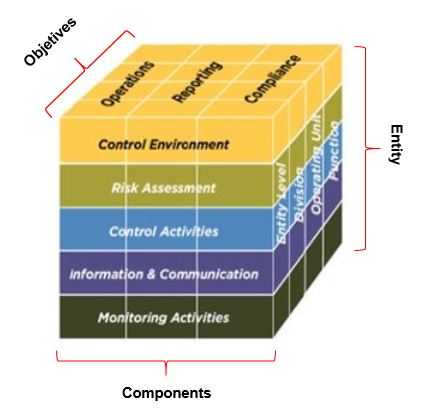The Internal Control System (ICS) of PMI® Comercio Internacional, S.A. de C.V.(PMI) is the set of policies, principles, standards, procedures, verification and evaluation mechanisms to provide a reasonable degree of security with respect to the achievement of the objectives set, guaranteeing the coordination of the actions, the fluidity of the information, the communication, as well as anticipate and correct, in a timely manner, the weaknesses that arise in the operation.
The ICS is based on the reference framework proposed by the Committee of Sponsoring Organizations of the Treadway Commission (COSO), which is an initiative to improve internal control within organizations.

In accordance with the diagram, there is a direct relationship between:
a. The objectives that PMI strives to achieve
b. The components to be considered to achieve the objectives, and
c. The structure of the entity in its divisions, operating units or functions, including business processes. Under this approach, internal control is a dynamic, interactive and integrated process. Therefore, internal control is not a linear process in which one component affects only the next. It is an integrated process in which components can and do impact others.
As mechanisms to anticipate and correct, in a timely manner, the weaknesses that arise in the operation, PMI conducts periodic evaluations of its internal controls, such as:
• Evaluation of Internal Controls at the Transaction Cycle Level.
• Evaluation of the State that Keeps the Internal Control System.
• Internal Control Risk Management.
From those evaluations, as well as from an inventory of risks, a work plan is implemented to correct the weaknesses, prevent the deviations found, or strengthen the design of the controls and their execution.